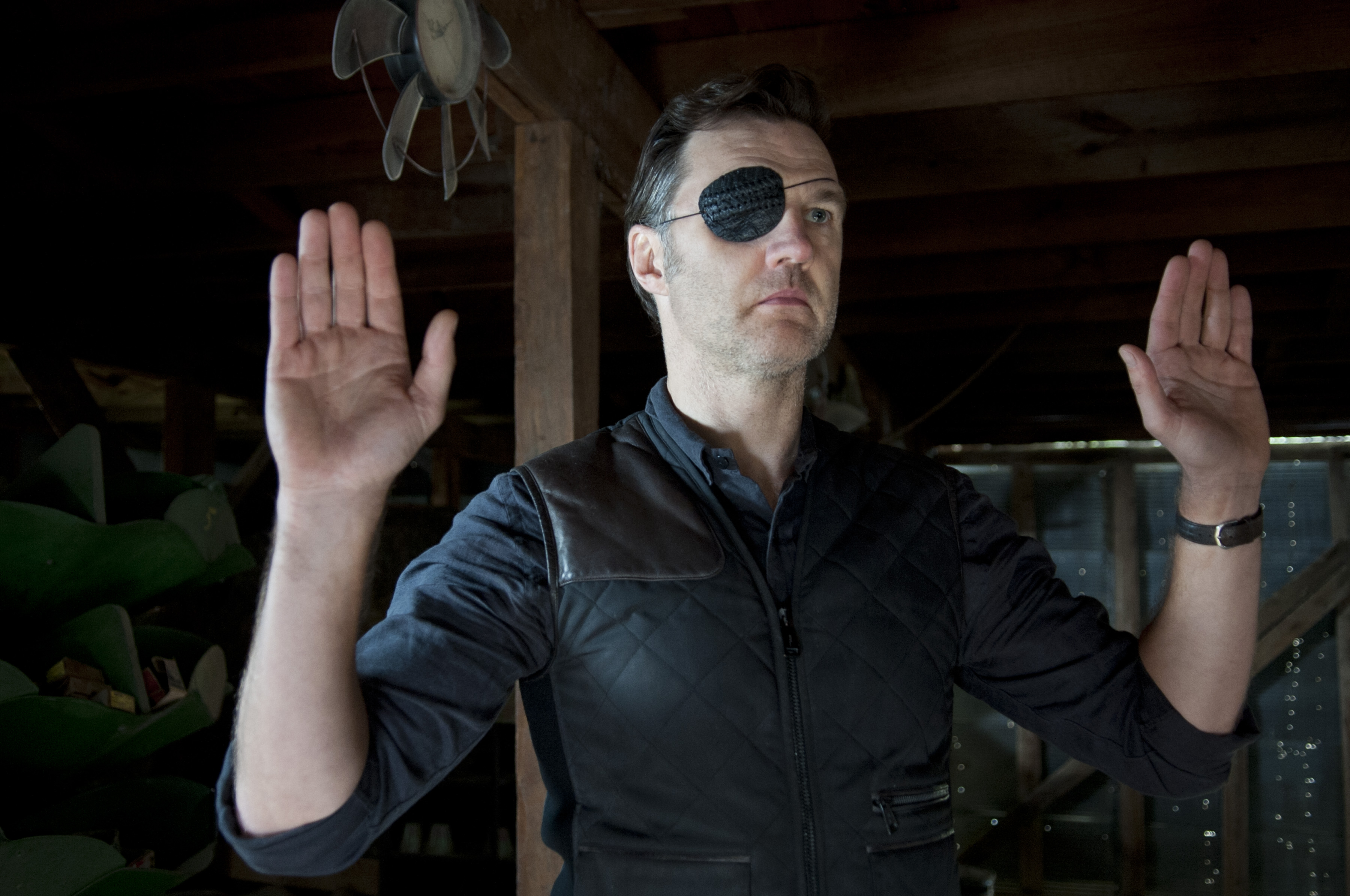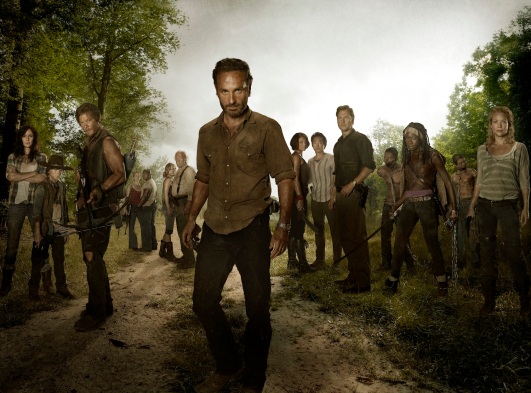Because I review a whole tv series rather than individual episodes, there is a chance of spoilers, so if you haven’t watched the whole series yet, stop reading now!
Sometimes, less really is more. I can see why Walking Dead was extended from its previous 6 and 13 episode seasons to a whopping sixteen episode season 3. Before Game of Thrones took control, The Walking Dead was the biggest and most talked about show on tv and it was clear why. It had human drama, great actors, believable characters and a wider situation that is ripe for story-telling. And zombies.
One of the biggest strengths of the series is fast becoming one of its weaknesses though. The longer the show develops, the less and less it’s about zombies. There is only so much story you can get from people running for their lives constantly and only so many times that a surprise zombie attack will thrill and excite. Instead the creators have made it much more about the survivors, their ability to cope and how they react when forces begin to threaten them. It makes for an interesting angle on the zombie apocalypse genre but only works if you keep the situation fresh.

Season 3 has some great, new aspects that means it begins as thrilling as many other seasons. The idea of the prison is a great one and for the first few episodes, gives our survivors a fantastic new environment and whole host of new situations to fight through. Add to that the inclusion of new characters in the form of the prisoners already there, and you get a whole new angle for the season to develop from.
New characters is the biggest strength of the season. The community of Woodbury and the season villain, The Governor, shows what happens if survival gets to the most extreme. It’s the perfect idea of a utopian community amongst the constant, dangerous threat that we are used too. Like any television and movie utopia though, there is a dark edge and again, it adds another, fresh dimension to the season.

The problem is, they decide to tell this story over five more episodes than is necessary. There are times when it feels like we are repeating the same stories but in a different way. Characters are kidnapped, rescued and then another character gets in trouble. Zombies are let free, controlled and contained, and then let free again. It’s the same themes but done two or three times a season because they have more episodes to fill.
The whole season is gearing towards the big clash of Andrew Lincoln’s Rick and David Morrissey’s Governor. The whole season puts these characters at loggerheads, the opposite side of the same situation and gears up for their clash. It helps that they are played by two fantastic actors. Lincoln has made Rick his own and its clear that he is not the same guy that woke up in the hospital three seasons ago. He’s grown, developed and changed with each episodes changing situations.

Morrissey plays the Governor much darker and murky than it could have been portrayed. He isn’t an out-an-out villain. There is a shade of grey to what he is doing and some justification to his actions. He mirrors Rick but with different methods. Their clash was going to be huge.
Except it wasn’t. It wasn’t a big, season-ending clash which had the huge repercussions you hoped it would. There were great moments, a small-scale attack on Woodbury and a retaliation on the prison, but other than a sit-down discussion, which was excellently scripted and acted, there was never that big, season ending clash.
The season seemed to run out of steam. The last episode was damp compared to what we’d had before. It ended on whimper rather than a scream and considering how much work had gone before, you wanted something fantastic and much bigger to justify the sixteen episode build-up.

There is still loads of meat on the Walking Dead bones though. I haven’t even touched upon the rest of the characters and how they developed, particularly Norman Reedus’ Daryl who got a whole season-arc that became one of the most interesting elements of the season. There was plenty of change and huge moments to savour too, including more pain for Rick and the central survivors of the show. It just felt diluted over the longer running time and if it had been thirteen episodes, trimming some of the more superfluous stories and repetitive moments, we could have a truly perfect piece of dramatic tv.
Overall, The Walking Dead season 3 has some great ideas and takes the show into an interesting new direction. It introduces elements that change the direction of the show and stretches the acting and talents of the core actors. Unfortunately, the season is about four episodes too long and ends with such a small, nothing episode that you feel cheated by all the build-up. There are some ingredients for season 4 though.
Best Episode – Made to Suffer: The episode that opens after a mid-season break would have been a much better season ending, with action and lasting consequences.
Best performance – Andrew Lincoln as Rick
Should there be another season? – Yes. There is so many more stories to tell in this scenario and some fantastic issues to be resolved in a fourth season.
Season Rating – 4
(1 – Awful, 2 – Average, 3 – Good, 4 – Great, 5! – Must See)





Excellent series, probably the best season 😀
Excellent series but not convinced that its the best season. Still think season 1 is pretty strong.
Could be the result of season 2 being so bad 😀
Thats fair… although I don’t think its as bad as everyone makes out… just slow.
Slow is bad! I was bored for half the episodes 😦
Nice review Ben and I agree with you. Long, slow, they could have done more with the prison, with Woodbury. I think season 2 is great! The farm episodes were great! Sophia’s disappearance, the clash between Rick and his mate.
Season 2 is a solid season but I don’t think they ever really get past Season 1’s quality. That’s still my favourite season so far.
Oh, I forgot to leave my name earlier!
Ah, I didn’t realise it was you! Thanks for commenting!